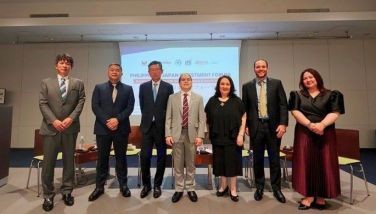Diploma in poverty reduction, anyone?
MANILA, Philippines - Students in state universities can pursue a degree in reducing poverty if a proposal of government scientists and educators materializes.
Speaking at a recent roundtable discussion organized by the Department of Science and Technology’s National Academy of Science and Technology, Chancellor Grace Alfonso of the University of the Philippines Open University based in Los Baños, Laguna said the course is “timely, necessary and addressed by many programs of the UP system.”
However, Alfonso said a Bachelor of Poverty Reduction in Agricultural Management might not be popular among students.
“It is difficult to sell such a program,” she said. “Only UP can be interested in it.”
Alfonso said she hopes in a few years, the course will become very popular.
“Politicians should take this program,” she said.
UPOU is mandated to offer programs such as poverty reduction.
UP-Diliman Chancellor Sergio Cao welcomed the idea and called on colleagues in academe to offer the program in their universities.
UP-Diliman can offer such a program because it is “serious in undertaking poverty reduction initiatives,” he added.
National Scientist Gelia Castillo said if UP offers the program, it should be placed under the College of Science.
UP-Marine Science Institute professor Rhodora Azanza also volunteered MSI to handle the program “as the Philippines is more water than soil in terms of territory.”
The offering of a Bachelor of Poverty Reduction was inspired by the success of the multi-agency initiative, Poverty Reduction in Agricultural Management program, implemented in Laos under the Asian Institute of Technology (AIT).
Nick Innes-Taylor of AIT’s Wetlands Alliance Program said the program’s 25-unit core courses include agricultural communication, health and sanitation, agro-ecology, agricultural management, natural food security, poverty mitigation, and PRAM seminars, among other things. The program also has 18-unit orientation courses and 35-unit electives, he added.
Peter Haddawy, AIT’s vice president for academic affairs, said education in agriculture plays an important role in preparing farmers, researchers, educators, extension staff, members of agri-businesses and others to make productive contributions.
“Agricultural education therefore has to undergo some changes and adaptations to contribute more effectively in improving food security, sustainable agricultural production and rural development,” he said.
- Latest

























